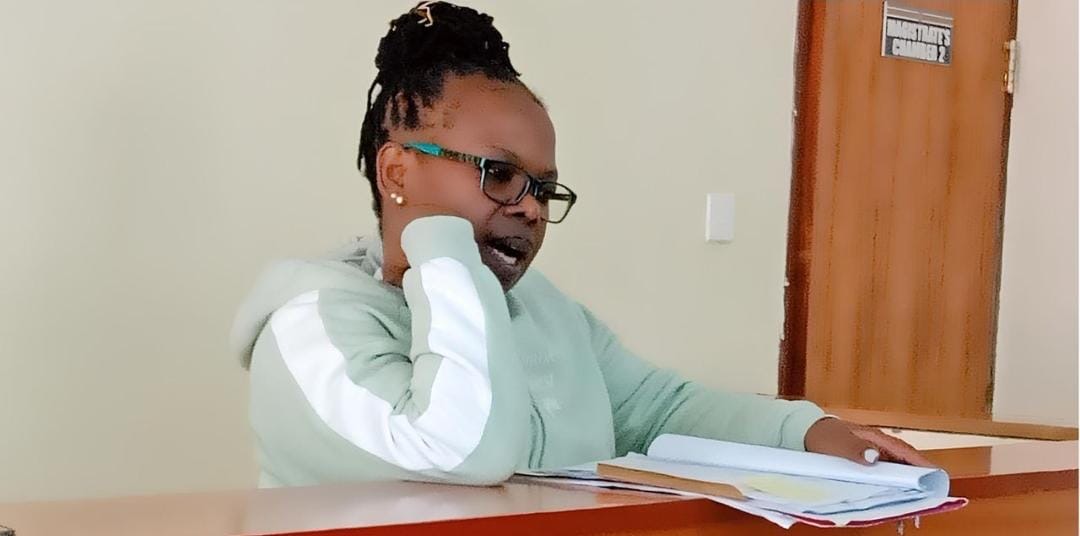News
EXCLUSIVE: How Mugwenu Doctors Fraudsters Convinced Former IEBC Commissioner to Burn Sh6 Million — A Wake-Up Call for Kenya
Mwachanya, who once held diplomatic credentials as Kenya’s deputy ambassador to Pakistan, found herself lured by a persistent online advertisement promising “divine” assistance in securing a top government job.

In a shocking twist of desperation, deception, and digital manipulation, former Independent Electoral and Boundaries Commission (IEBC) commissioner Margaret Mwachanya has come forward with a haunting tale — one that reads like the script of a tragic play, but whose horror is all too real.
She didn’t lose her millions in a shady business deal or political fallout.
She lost it in candles, incantations, and wooden boxes filled with empty promises, all orchestrated by a cartel of scam artists masquerading as “spiritual healers” under the infamous brand name: Mugwenu Doctors.
This is not just a story about a high-profile figure duped by conmen.
It is a blistering indictment of an industry of deception thriving in plain sight — peddling fake miracles online while preying on power-hungry leaders and desperate citizens alike.
A Call That Cost Her Everything
It all started innocuously — a Sh3,000 consultation fee in early 2024.
Mwachanya, who once held diplomatic credentials as Kenya’s deputy ambassador to Pakistan, found herself lured by a persistent online advertisement promising “divine” assistance in securing a top government job.
The banner ad blinked across her phone screens for days.
Like many Kenyans scrolling through social media in silence, she finally gave in and called the number.
That single call began a financial and emotional spiral that would drain her of over Sh6 million, her dignity, and peace of mind.
“I was desperate,” she told a stunned Vihiga courtroom. “And they knew it.”
From Herbal “Medicine” to Financial Witchcraft
What began with a Sh12,500 herbal concoction quickly snowballed into bizarre rituals.
She was told to multiply her age (53) by four zeros and withdraw Sh530,000 for a ritual. The cash was handed to a stranger, sealed in a container, and — quite literally — prayed over.
When she opened the container after 21 days, the money had vanished.
“The doctor said it was safe,” she recalled. But the demands didn’t stop.
Soon she was told to pay Sh380,000 more, then Sh1.8 million to unlock a box of “spiritual money” claimed to be hers since birth.
She was shown bundles of cash and told she had Sh18.3 million waiting — if only she sent more.
They later raised the figure to Sh48 million, a lie so grotesque it should’ve sounded alarms.
But the con was expertly staged. Incense, shadows, whispers from behind curtains, fake elders from Tanzania — all crafted to overwhelm her logic and feed her hope.
Her final act in this spiritual drama?
Tossing her treasure-laden box into a bonfire, believing the promised millions would appear in her bank account. Instead, she was told to run — “for her life.”
Not the First, Not the Last
Mwachanya is not alone.
In 2022, Kakamega Governor Fernandes Barasa also made headlines after falling victim to a nearly identical scheme.
Desperate for re-election success and emboldened by spiritual promises, he too sought the services of fake witchdoctors.
According to sources close to the case, he lost millions in phantom rituals and fake blessings.
And yet, these conmen continue to operate online — unbothered, unregulated, and unrepentant.
The Rise of the Digital Witchdoctor
A simple Google search of “Mugwenu Doctors” reveals a slick network of testimonials, blogs, and websites filled with stock photos of “happy clients.”
Success stories are fabricated, comments manufactured, and photos borrowed from foreign pages.
It’s all designed to bait the desperate — job seekers, jilted lovers, terminal patients, and yes, even politicians with power.
This is no longer traditional herbalism; it’s a multi-million-shilling cybercrime operation that weaponizes belief, exploiting spiritual hunger for personal gain.
Why Are Our Leaders This Gullible?
That a former diplomat and an elected governor could fall for such stunts is not just embarrassing — it’s dangerous.
Kenya’s elite, sworn to uphold constitutional ideals and rational governance, are now turning to witchcraft in search of political favors.
What does that say to the youth? To civil servants? To the next generation?
It reeks of a cultural rot, where shortcuts and superstitions are favored over merit, integrity, and policy.
This growing flirtation between politics and the occult must be condemned with the same urgency as corruption or tribalism.
The Cost of Silence
As Mwachanya seeks justice in court, the bigger question looms: How many more suffer in silence?
For every high-profile victim, there are likely thousands who’ve lost their savings, health, or hope to these fake spiritualists.
Most never speak out — bound by shame, fear, or stigma.
It is time Kenya regulated, investigated, and shut down these digital shrines of deception.
The Communications Authority, law enforcement, and religious institutions must step in to cleanse the online space of these predators.
Final Thought
If even the powerful can be fooled by “doctors” hiding behind curtains and candles, what hope is there for the ordinary citizen?
Margaret Mwachanya’s tragic tale must serve as a wake-up call: Your faith is not a currency. Your future cannot be unlocked by fire and salt.
Because in the end, when the flames die down, only the scammers walk away richer.
Have you been a victim of online spiritual scams? Reach out confidentially at [[email protected]]. Let’s expose them — together.
Kenya Insights allows guest blogging, if you want to be published on Kenya’s most authoritative and accurate blog, have an expose, news TIPS, story angles, human interest stories, drop us an email on [email protected] or via Telegram
-

 News1 week ago
News1 week agoTHE FIRM IN THE DOCK: How Kaplan and Stratton Became the Most Scrutinised Law Firm in Kenya
-

 Investigations2 weeks ago
Investigations2 weeks agoMulti-Million Dollar Fraud: Three Kenyans Face US Extradition in Massive Cybercrime Conspiracy
-

 Economy1 week ago
Economy1 week agoIran Demands Arrest, Prosecution Of Kenya’s Cup of Joe Director Director Over Sh2.6 Billion Tea Fraud
-

 Business2 weeks ago
Business2 weeks agoA Farm in Kenya’s Rift Valley Ignites a National Reckoning With Israeli Investment
-

 Africa2 weeks ago
Africa2 weeks agoFBI Investigates Congresswoman Ilhan Omar’s Husband’s Sh3.8 Billion Businesses in Kenya, Somalia and Dubai
-

 Grapevine6 days ago
Grapevine6 days agoA UN Director Based in Nairobi Was Deep in an Intimate Friendship With Epstein — He Even Sent Her a Sex Toy
-

 News2 weeks ago
News2 weeks agoTragedy As City Hall Hands Corrupt Ghanaian Firm Multimillion Garbage Collection Tender
-

 Arts & Culture2 weeks ago
Arts & Culture2 weeks agoWhen Lent and Ramadan Meet: Christians and Muslims Start Their Fasting Season Together





















